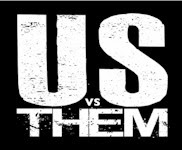Community?
(This is from my letter to my congregation I sent out today, 30 August 2023)
As one of my elders was leading us through Carl Trueman’s Strange New
World in our adult class, I appreciated Trueman’s emphasis on community. And our discussions,
especially the last two Sundays, were very fruitful as we thought out loud together
about this subject. Therefore, I thought I would share something from David
Brooks, an Op-ed columnist that leans into this discussion.
Brooks published a book in 2019 titled, “The Second Mountain:
The Quest for a Moral Life”. In that work he was taking a gentle punch at destructive
trends he has been seeing, and giving some helpful correctives. And so, he notes
that “Individualism, taken too far, leads to tribalism” (34). He then shows how
the loneliness and spiritual emptiness of individualism taken too far have
become more prevalent in our time and the ways that they lead to very dark
social consequences. These darker social consequences foster the need to become
part of an in-group, a tribe. People are vulnerable to becoming what he calls “tribalists.”
And tribalists “seek out easy categories in which some people are good and
others are bad. They seek out certainty to conquer their feelings of unbearable
doubt. They seek out war – political war and actual war – as a way to give life
meaning” (35). Much of Brooks’s description sounds like what James was pushing
against in James 4:1-3, about where quarrels and fights come from. And how,
when our wants become needs that become rights and then entitlements, this is
the way of friendship with the world, which is enmity with God.
But then Brooks goes on to give a helpful contrast between tribalism and community. It’s deeply significant, and reminiscent of what Trueman was getting at. Brooks observes:
“Tribalism seems like a way to restore the bonds of community. It certainly binds people together. But it is actually the dark twin of community. Community is connection based on mutual affection. Tribalism, in the sense I’m using it here, is connection based on mutual hatred. Community is based on common humanity; tribalism on common foe. Tribalism is always erecting boundaries and creating friend/enemy distinctions. The tribal mentality is a warrior mentality based on scarcity: Life is a battle for scarce resources and it’s always us versus them, zero-sum. The ends justify the means. Politics is war. Ideas are combat. It’s kill or be killed. Mistrust is the tribalist worldview. Tribalism is community for lonely narcissists” (35).
If our society continues to move in that direction, as both
Brooks and Trueman are projecting, the church ought to be the ready-made,
Gospel-made, light to a dark world. (1) Christian community is based on mutual
affection, just as our Lord directed, “A new commandment I give to you, that
you love one another: just as I have loved you, you also are to love one
another. By this all people will know that you are my disciples, if you have
love for one another” (John 13:34-35). (2) Christian community is based on
common humanity, a Gospel-made common humanity, “For Christ himself is our
peace, who has made us both one and has broken down in his flesh the dividing
wall of hostility by abolishing the law of commandments expressed in
ordinances, that he might create in himself one new man in place of the two, so
making peace, and might reconcile us both to God in one body through the cross,
thereby killing the hostility. And he came and preached peace to you who were
far off and peace to those who were near. For through him we both have access
in one Spirit to the Father” (Ephesians 2:13-18). And (3) Christian
community cultivates the wisdom from above, a way of our being together that is
the polar opposite of warring and fighting and tribalism, “But the wisdom
from above is first pure, then peaceable, gentle, open to reason, full of mercy
and good fruits, impartial and sincere. And a harvest of righteousness is sown
in peace by those who make peace” (James 3:17-18).
Let’s keep talking and thinking about Christian community, and our part in nurturing it at Heritage. And in a world of increasing loneliness and spiritual emptiness, let’s keep deliberating on how we, as God’s sacred society, can be part of the remedy instead of the disease.
Pastor Mike




Comments